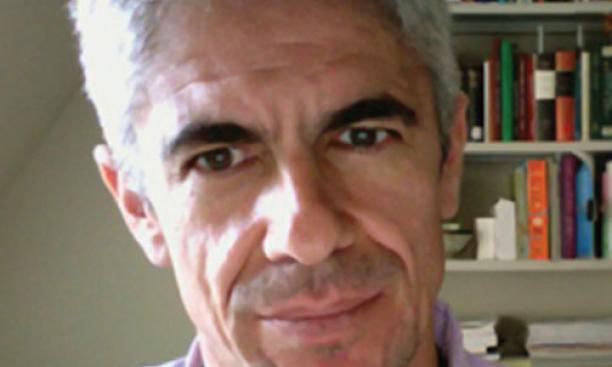

Responding to the suicide of Princeton lecturer Antonio Calvo April 12, a group of undergraduates is asking for an investigation into his death and for greater transparency in the University’s faculty review and reappointment procedures.
Calvo, 45, senior lecturer in the Department of Spanish and Portuguese Languages and Cultures and the director of Princeton’s Spanish language program, was on leave and facing the loss of his U.S. visa when he took his life. News reports said he was told abruptly to leave campus and was denied access to his Princeton office and e-mail, and had not been told why he was being dismissed. Citing privacy concerns, University officials have declined to discuss the reasons for or conditions of the leave.
Under the banner “Justice for Calvo,” about 25 students and staff members met April 16 at Wilson College. “Many of us are angry, and understandably so, but we all know that Antonio was a lover, not a fighter,” said Philip Rothaus ’11, who had asked for an investigation into the death. “However we proceed, it must be done with love for Princeton and not anger at Princeton. Antonio was dedicated heart and soul for a decade to his department and his students.”
In a meeting with eight of the Justice for Calvo students May 3, President Tilghman outlined the procedures for lecturer reappointment and dismissal. Allegations that arise during reviews, which are conducted every three or five years, are “thoroughly investigated,” she said. A faculty member under review can appeal the decision to an elected faculty committee, and the final decision rests with the president, she said.
Asked by the students what merited the immediate removal of a lecturer, Tilghman said that there was “flexibility” in circumstances where the lecturer’s presence was deemed “inappropriate,” attendees said. The students questioned the flexibility permitted in the policy.
James Williams ’13 said the students hoped to achieve several things: an independent review, an understanding — at least for the Calvo family — of what led to the leave, an “admission” that the apparent suspension was “without a proper policy basis,” and a “greater demonstration of sympathy” for family members, who said they were not contacted by University officials after the death. But their main goal is to obtain a pledge of greater transparency and accountability in University evaluation and reappointment procedures, said Flora Thomson-DeVeaux ’13.
In mid-May, the students were seeking faculty members to help them appeal the case. They also are considering an option suggested in a Daily Princetonian column by R. William Potter ’68 that an independent “special reviewer” be enlisted from outside the University, given full access to the Calvo files, and report his or her findings to the Board of Trustees.
